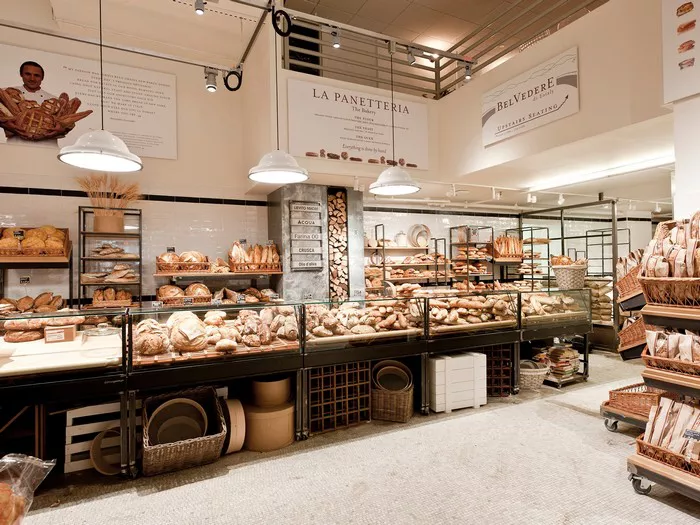Embarking on the sweet journey of owning a cake shop franchise is not only a delectable business venture but also a strategic investment in the flourishing dessert industry. In this comprehensive guide, we’ll explore the costs associated with opening a cake shop franchise, shedding light on key financial considerations and potential returns on investment.
1. Franchise Fees:
To enter the world of cake shop franchising, aspiring entrepreneurs are typically required to pay an initial franchise fee. This fee serves as the ticket to leverage the established brand, business model, and ongoing support from the franchisor. It’s a crucial component of the overall investment and contributes to the following:
Brand Usage Rights: The franchise fee grants you the right to operate under the established brand name, benefit from the reputation and recognition of the cake shop franchise.
Training and Support: A portion of the franchise fee goes towards initial training programs and the continuous support provided by the franchisor. This includes guidance on operations, marketing, and product offerings.
2. Location and Lease Costs:
The choice of location plays a pivotal role in the success of a cake shop. Costs associated with securing the right location include:
Lease or Rental Fees: Renting a commercial space for your cake shop involves monthly or annual lease payments. Factors such as location, size, and local real estate conditions influence lease costs.
Renovation and Build-Out: Preparing the chosen space for a cake shop may require renovations and build-out costs. This includes interior design, display cases, and kitchen setup.
3. Equipment and Supplies: Tools of the Baking Trade
Equipping your cake shop with the necessary tools and supplies is a significant aspect of the initial investment. Consider the following costs:
Baking Equipment: Ovens, mixers, display cases, and other specialized baking equipment contribute to the upfront investment. Quality equipment is essential for delivering top-notch baked goods.
Utensils and Smallwares: From spatulas to cake pans, investing in high-quality utensils and smallwares ensures smooth operations in the kitchen.
Ingredient Supplies: The initial inventory of baking ingredients, including flour, sugar, eggs, and other essential supplies, is part of the initial investment.
See also: What Do You Mean by Bakery Franchise: A Quick Guide
4. Marketing and Grand Opening: Creating a Buzz
Building awareness and attracting customers to your cake shop require a strategic marketing approach. Consider the following costs:
Grand Opening Promotion: A grand opening event with promotions, discounts, and special offers helps create buzz and draws in the local community.
Marketing Collateral: Designing and printing marketing materials, such as menus, flyers, and promotional materials, contributes to the initial marketing investment.
Digital Marketing: Allocating budget for online marketing efforts, including social media campaigns and a website, is essential for reaching a wider audience.
5. Franchise Royalties: A Slice of the Revenue
In addition to the initial franchise fee, most cake shop franchises require ongoing royalty payments. This is typically a percentage of the gross sales and contributes to the following:
Continued Support: Royalty fees fund ongoing support and resources provided by the franchisor. This includes access to updated recipes, marketing materials, and training programs.
Brand Development: A portion of the royalty fees may go towards national or regional brand development campaigns that benefit all franchisees.
6. Staffing Costs: Nurturing a Skilled Team
Hiring and training staff is an essential component of operating a successful cake shop. Staffing costs include:
Salaries and Wages: Budgeting for the salaries and wages of bakers, sales staff, and other personnel is a key ongoing expense.
Training Programs: Investing in training programs ensures that your team is equipped with the skills and knowledge necessary to maintain the quality standards of the cake shop franchise.
7. Contingency Fund: A Cushion for the Unexpected
As with any business venture, it’s wise to allocate a contingency fund to cover unexpected expenses or challenges that may arise during the initial stages of the cake shop’s operation.
8. Return on Investment (ROI): The Sweet Reward
While the initial investment is significant, the potential return on investment is the ultimate goal. The profitability of a cake shop franchise depends on factors such as location, marketing effectiveness, and the quality of products and services.
In conclusion, opening a cake shop franchise involves a thoughtful consideration of various costs, from initial franchise fees to ongoing royalties and operational expenses. By carefully planning and understanding the financial aspects of cake shop ownership, entrepreneurs can embark on a flavorful journey towards sweet success in the world of baked delights.
Related information:

